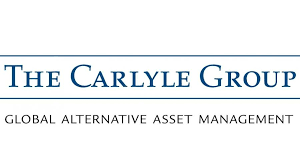What are private equity funds?
Private equity funds are an important topic in the financial markets. This will be an introduction to the topic, private equity is one of those buzzwords, but what does it actually mean?
There’s a little bit of confusion, and I hope in this post I can explain the basics of what private equity firms actually do.
A private equity firm is, as it sounds, a way to raise equity capital on a private basis. Private equity investors typically only want to buy shares in certain companies.
I’ll get into that in a minute, and they’re usually private.
If you would like to read more about how to build your wealth, check my other post, Financial Independence.
Table of contents
- What are private equity funds?
- Private Equity Specialties
- Understanding Private Equity funds
- What is the difference between hedge funds and private equity?
- Are private equity funds a good investment?
- How do investors in private equity make money?
- The principle with private equity is the same
- How Private Equity creates value?
- Can I invest in a private equity firm?
- What is an example of private equity?
Venture capital
There are three basic categories of private equity investment avenues. The first is venture capital, which falls under the first term.
Venture capitalists are firms that specialize in investing in small, private startups that are typically high-risk. They need “seed funding” to get off the ground and expand. These venture capitalists provide equity capital and have a chance to cash in when the company goes public from the private sector.
Growth capital
The second type of private equity is growth capital for existing, potentially quite large, quite public companies.
Sometimes companies look around for ways to grow and expand. They’re looking for something that’s potentially relatively cheap that they can use to achieve their goals, and they bring in a private equity firm as an expert.
Because private equity firms claim that they’re not just providing growth capital, they’re also providing some kind of management expertise, they claim that they’re able to provide experienced professionals who can help the company grow.
involved in bringing capital into an existing company that may already be quite large.
LBO leveraged buyouts
Private equity firms sometimes come in with a lot of money and say, “We can buy a company.” So here they’re privatizing a pop
blick firm private is almost the opposite of what happens They want to buy the company, improve it, and often reverse the process later, meaning they’ll track down our target, buy it from existing shareholders, make operational improvements, and then sometimes sell it back to the market at a higher price.
Private equity recap
Private equity investments can invest in companies with high return potential.
These typically have a fixed investment horizon of four to seven years and aim to maximize profits after exiting the investment.
The exit strategy consists of an initial public offering, a sale of the company to another private company, or to a strategic buyer.
Usually established as institutional funds that provide significant capital over an extended period of time. Financed and managed by investment experts from a PE firm.

Private Equity Specialties
What about specialization?
Can it be said that certain private equity funds prefer to get involved with a certain type of target company?
The short answer is yes.
Most private equity firms specialize in deals with a certain type of target company based on the lifecycle stage of those target companies.
Interesting in young companies with high growth prospects, and promising management teams,
While others focus on established companies with stable cash flow Leveraged buyout transactions aren’t uncommon
Private equity firms and funds primarily specialize in the private equity market.
Typically, venture capital is part of private equity,
but its specific functions and capabilities distinguish it from others, which has led to the creation and dominance of venture capital firms.
Understanding Private Equity funds
Let’s talk about PE structure,
Typically structured in two ways: as limited partnerships or as closed-end funds.
Limited partnerships are far more popular in the U.S., while closed-end funds are more common in the U.S.
Limited partnership
In a limited partnership, there are two types of partners General and limited.
General partners are managing the portfolio of the target company Selection and post-investment advice.
Limited partners provide investment capital General partners charge the partnership a management fee and have the right, Receive Carried Interest.
The compensation structure (20%), where 2% pay as a management fee even if the fund is unsuccessful,
and of all post-break-even proceeds received by the General Partners in some cases,
the partnership agreement sets a minimum return that must achieve before the carried interest can pay to the General Partners.
Limit Partners receive all of the fund’s returns – i.e., what’s been paid to the General Partners.
Closed-end funds
A closed-end fund is different because usually a newly establish company to which investors provide capital and with which the management company enters into a management contract.
The remuneration arrangements are very similar for this type of structure: in most cases, the classic 2:20 rule applies plus a hurdle rate for management, after which 20% of the carried interest accrues
What is the difference between hedge funds and private equity?
Distressed investing is an area where there’s some overlap between private equity and hedge funds – both types of funds could invest in a distressed company that’s listed on a stock exchange.
The main difference, however, is their investment horizon.
Private equity funds typically seek to (1) acquire all of the shares of the target company,
(2) delist the company, (3) change management and take steps to improve financial performance, and then be patient for at least a couple of years before exiting the investment through a sale or new listing.
an investment in a hedge fund, on the other hand, would probably have a very short maturity.
The fund buys the securities of distressed companies when it believes there’s a good chance of reselling those securities at a profit in the short term, i.e., no more than two to three months.
This comparison gives a good insight into what most private equity deals are trying to achieve:
The acquisition of a large stake in a company, preferably one hundred percent, but not less than 50 percent.
position the company for growth through active participation, advice,
and if necessary, management changes and replacements have the patience to allow the company to grow,
improve its profitability and then exit the investment in a period of five to ten years.
The art of the private equity profession is, of course, to bet on the right companies and then to accompany them successfully in order to optimize their chances of success.
Are private equity funds a good investment?
Private equity provides a good investment opportunity for high-value investors due to the high returns. Private equity is considered an alternative asset class.
How do investors in private equity make money?
The reason why private equity funds are such an attractive investment opportunity is because of their fairly high returns:
Private equity funds typically beat the S&P 500,
Making them an attractive investment vehicle for those with the means to invest in them
but the way they sell is what makes them so interesting. Imagine buying a house, paying 15% of it as a down payment and the rest via a mortgage.
You don’t plan to use the house,
so you rent it out and the amount you charge for rent is enough to pay the property tax, utilities, and mortgage.
So what’s it about?
You acquire ownership of the house at the expense of the tenant,
if he pays rent, he pays for you to own the house
The principle with private equity is the same
When these funds raise money,
that money is usually used to buy only part of the company they’re trying to buy.
You can think of it like a down payment fund, but usually,
40 to 50 percent of the company is paid for with the fund’s money raised.

the rest is paid for with leverage, which is a fancy word for debt,
and knowing that they mostly target profitable companies,
that means they could use some of the money that would have gone into profitability to pay back the debt
so if I buy a company with two million in profit at a price of ten million dollars that’s six million in debt and four million in cash, I can use the two million to pay off the six million in debt within three years of paying off the debt.
to make a six million dollar profit – that’s the idea of a leveraged buyout that helps these funds achieve such high returns. Private equity actually actively tries to grow the companies they buy so they can sell the company at a higher price than they bought it for to maximize their return on investment
How Private Equity creates value?
As soon as private companies take over businesses, they already have plans to increase their value. These may include drastic cost reductions or restructuring, measures that the previous management had feared. Private equity investors are more likely to invest before exiting their investments to make significant changes. The private equity firm has specialized knowledge that previous management lacked. It can help a company develop and implement a strategy to expand e-commerce and other products.
Can I invest in a private equity firm?
Normally the fund has limited openness to investors and qualified clients. Accredited investors and qualified clientele include institutional investors, universities and fund managers, and high-income people and businesses.
There are many ways to invest in private equity. Invest through a private equity firm. This is the most common way to invest in private equity. However, it’s limited to investors who’re wealthy or experienced enough to qualify as accredited investors.
You can buy shares in an exchange-traded fund (ETF) that tracks an index of publicly traded companies that invest in private stocks. Because you buy individual shares through the exchange, you don’t have to worry about minimum investment amounts.
Fund of funds
However, as with a fund of funds, there are additional management costs associated with an ETF that you’d not incur if you invested directly in private equities. Also, depending on the brokerage firm, you may have to pay a brokerage fee each time you buy or sell shares.
Although traditional private equity is open only to wealthy or accredited investors, some forms of Private Equity are more democratic – they don’t require six figures to play. Here’s a rough overview of the requirements.
Equity Crowdfunding
As with other crowdfunding models, equity crowdfunding is where a company or individual uses an online platform to raise money from numerous individuals. However, instead of just receiving a gift or cool product, as is the case with regular rewards crowdfunding, private equity crowdfunding participants receive a stake in the company. An added bonus is that these platforms are subject to the regulations of the SEC.
Angel investors
they are experienced entrepreneurs or well-heeled professionals who put money into startups and younger companies in exchange for a share of the capital. Often, this is real seed capital for companies that are too young or too small for venture capitalists.
What is an example of private equity?
Private investors include Blackstone, Kohlberg Kravik Roberts & Co, and Carlyle.
Blackstone
Founded in 1985 and headquartered in New York, with offices in London, Hong Kong, Beijing, and Dubai.

The company invests across a broad range of market sectors, including energy, retail, and technology. While private equity ($126 billion) is its largest category of investments, Blackstone also has hundreds of billions of dollars in holdings in real estate, credit, and hedge fund solutions.
Kohlberg Kravis Roberts & Co.
founded in 1976 and headquartered in New York, KKR is known for being one of the first firms to engage in large-scale leveraged buyouts, which are still one of the firm’s specialties.

also known as Kohlberg Kravis Roberts & Co. is an American global investment firm that manages several alternative asset classes, including private equity, energy, infrastructure, real estate, credit, and, through its strategic partners, hedge funds.
The Carlyle Group
The Carlyle Group is an American multinational private equity firm with a market capitalization of nearly $6 billion. The company has a huge portfolio of assets under management, which it invests to generate high returns.

As we’ll see in this article, the impressive portfolio, performance and potential fees make the company a good investment.
